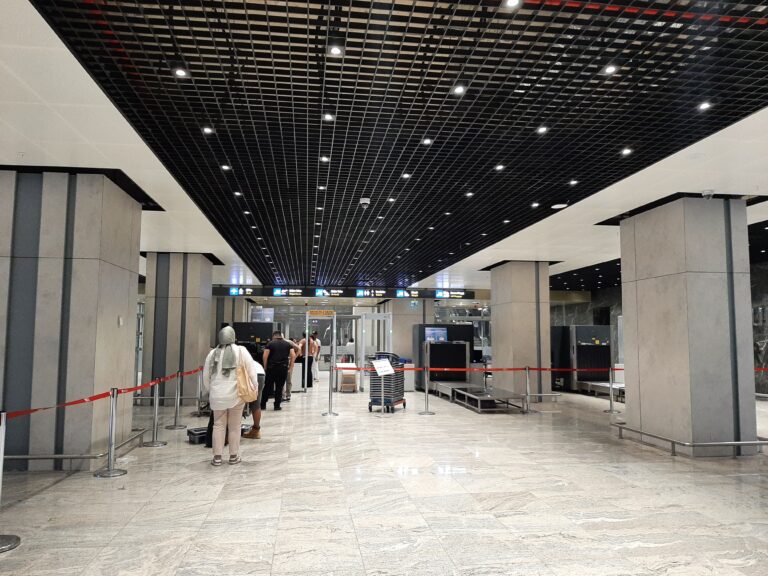Turkish evisa and residence permits – the basics
Turkish evisa – for tourist purposes
Most people, when they come to Turkey for a short holiday, will need an e-visa. The rules are based on your nationality so once you know need one, go to the official Turkish government website and enter your details. Here’s the link. Have your passport handy, and make sure you enter all your details correctly. If your passport expires less than 6 months after you plan to enter Turkey, you won’t be given an e-visa. It’s a pretty straightforward process so I think it’s a waste of money pay an agent to do it for you, unless you really have trouble with computers.
Once your payment has been processed and you receive your Turkish evisa by email, download it onto your phone, tablet or laptop. It’s a good idea to take a print out with you, for two reasons. One is that if you get to the airport and your device doesn’t work, you won’t be allowed to board unless you can show you have permission to enter Turkey. Secondly, by law you must carry your passport and a printout of your e-visa with you at all times while you’re in Turkey. If you’re stopped by the police and can’t produce them, you’ll be fined.
Remember, the days of popping over to a Greek island and getting a new visa to stay in Turkey are long gone. You’ll need to stick to the terms of your Turkish evisa, or be prepared to face fines and possibly a ban if you overstay for a very long time.
Short-Term Residence Permits (ikamet) – for people planning to live in Turkey
Most people arrive in Turkey on a tourist e-visa, and then apply for a short-term residence permit so they can stay longer. Whatever type of tourist visa you use to enter Turkey, a 30 day single entry visa or a 90/180 day multiple entry tourist visa, you must make an appointment to apply for a residence permit before your visa expires. That way, if your residence permit appointment falls after that date, you’re legal to stay in Turkey until your appointment. Note that depending on the demand, particularly in Istanbul, there can be delays ranging from several weeks to months to get an appointment.
Here’s the link. You can only make an application once you’re in Turkey. The site comes in Turkish, English and several other languages, and there’s detailed information about the paperwork you need to submit. Be aware that there can sometimes be delays and technical difficulties when using the site. If you’re having trouble ring 157 and talk with an English speaking adviser who will try to help you with any problems.

Your passport must be valid for two months past the length of the residence permit you apply for. At the time of updating this post, people applying for first time resident permits were only being granted them if they owned property with a sales value of at least US$200,000, or on a government pension. Even if you meet these criteria, many areas around Turkey have already met their limit of 25% foreign population which means you won’t be granted a permit in certain areas, even if you buy property.
The amount you pay for your permit depends on the number of months you want and your country of origin. The amount payable will appear on your application form once you have submitted it via the government website. Do note that until your application has been approved you are advised not to leave Turkey. If your tourist visa expires before you get your residence permit and you have to leave the country unexpectedly you’ll be considered an overstayer and be fined accordingly. Also once you’ve been approved it can take several weeks or even longer to receive your new residence card.
The information in the paragraph above was correct as of 1 November 2023. Immigration rules in Turkey constantly change and although I try to keep up with everything, the onus is on you keep up to date with any new rules and regulations. Here’s a link to a reliable site that can help you understand how you’ll need to apply according to your particular situation.
This is just a general guide on how to visit and stay in Turkey legally. There are numerous expat groups on Facebook and the internet you can join for more detailed information. Enjoy your stay!
Here are my helpful tips for planning your trip to Turkey
For FLIGHTS I like to use Kiwi.com.
However E-SIM are the way to go to stay connected with a local phone number and mobile data on the go. Airalo is easy to use and affordable.
Even if I never claim on it, I always take out TRAVEL INSURANCE. I recommend Visitors Coverage.
I’m a big advocate of public transport, but know it’s not suitable for everyone all the time. When I need to be picked up from or get to Istanbul Airport or Sabiha Gokcen Airport, I use one of these GetYourGuide website AIRPORT TRANSFERS.
ACCOMMODATION: When I want to find a place to stay I use Booking.com.
CITY TOURS & DAY TRIPS: Let me guide you around Kadikoy with my audio walking tour Stepping back through Chalcedon or venture further afield with my bespoke guidebook Istanbul 50 Unsung Places. I know you’ll love visiting the lesser-known sites I’ve included. It’s based on using public transport as much as possible so you won’t be adding too much to your carbon footprint. Then read about what you’ve seen and experienced in my three essay collections and memoir about moving to Istanbul permanently.
Browse the GetYourGuide website or Viator to find even more ways to experience Istanbul and Turkey with food tours, visits to the old city, evening Bosphorus cruises and more!
However you travel, stay safe and have fun! Iyi yolculuklar.









You can get a letter that allows you to leave the country while your residence permit is in process.
Yes, but only after you’ve had your appointment and submitted all your documents.